Publications
Articles, publications, books, tools and multimedia features from the U.S. Institute of Peace provide the latest news, analysis, research findings, practitioner guides and reports, all related to the conflict zones and issues that are at the center of the Institute’s work to prevent and reduce violent conflict.
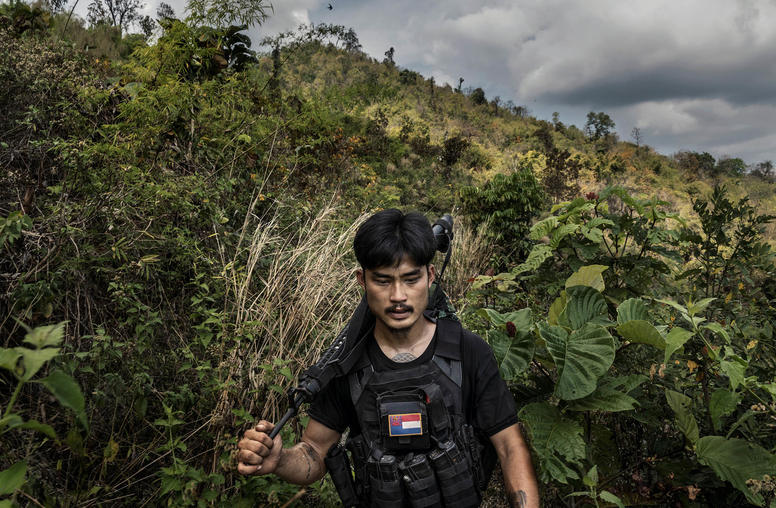
Three Years After Coup, Myanmar’s Generals Face an Existential Crisis
Three years after Myanmar’s military overthrew the country’s democratically elected government, the ruling generals — having suffered humiliating battlefield defeats — face an existential crisis. Victories by the diverse ranks of Myanmar’s resistance have invigorated their morale and they are tightening battlefield coordination despite slow progress toward political consensus. The military, meanwhile, is short of manpower and controls a shrinking percentage of the nation.
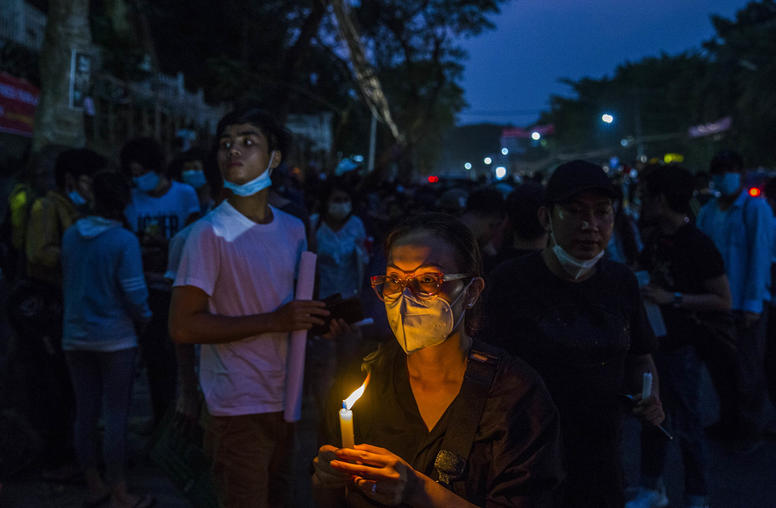
The Myanmar Army’s War Against Mental Health and Psychosocial Support
After nearly 75 years of sustained conflict, Myanmar’s population has suffered devastating and compounding intergenerational trauma. But rather than address that collective trauma, successive military governments have terrorized the country while also disinvesting from systems of mental health and psychosocial support (MHPSS).
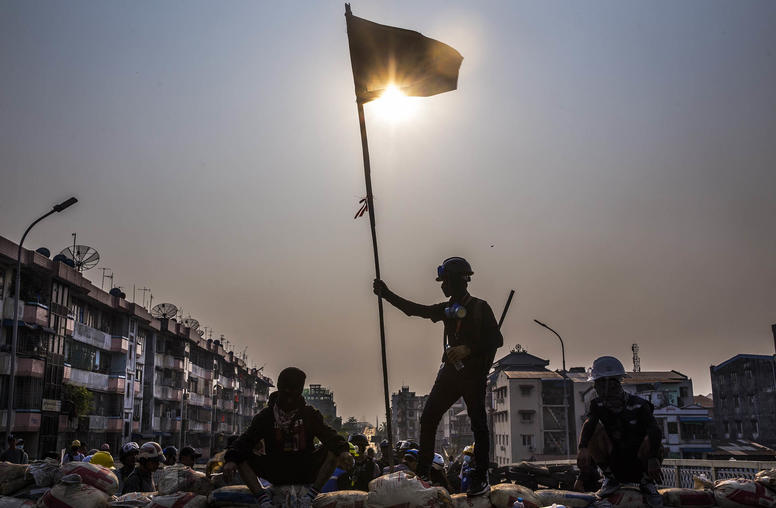
We Shouldn’t Fear a Resistance Victory in Myanmar
As the national uprising against Myanmar’s coup regime has gained strength, a singular question has hovered over the widening campaign: If this patchwork of ethnic armed groups, deposed elected leaders, activists and armed defense forces manages to topple the junta, would they be able to govern, or would the country descend into greater chaos?
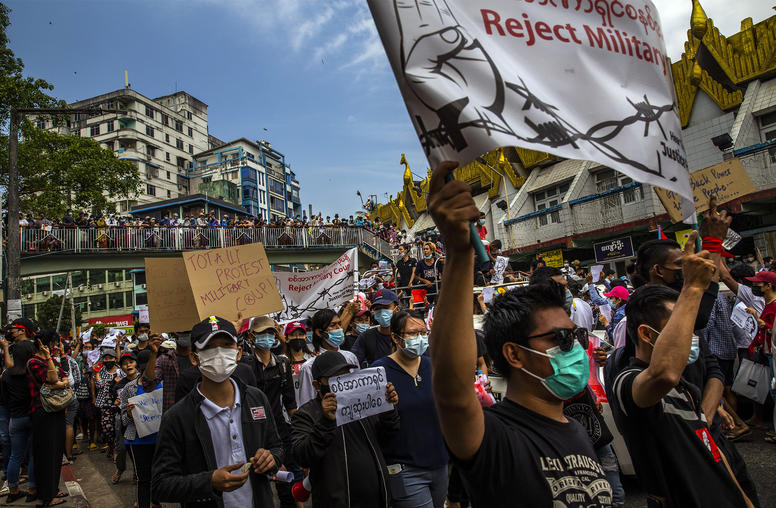
Support for Myanmar’s Junta Only Prolongs the Country’s Conflict
Myanmar’s coup regime, whose principal strategy for dealing with the country’s resistance movement is blunt, unrelenting brutality, benefits from three misconceptions prevalent in the international community: First, that consolidation of the military’s power is essentially inevitable; second, that absence of the generals’ regime would lead to a power vacuum and failed state; and third, that long-term military control is preferable to the status quo and would lead to stability.
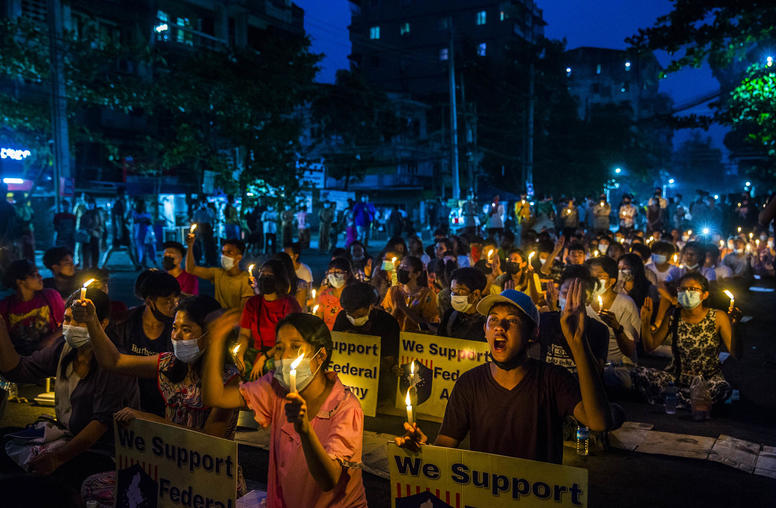
For Myanmar, the Only Path to Stability Runs Through its Web of Resistance Forces
Even as Myanmar’s resistance forces gain ground on the battlefield, much of the international community continues to view the country’s anti-coup movement as fragmented and lacking cohesion. That perception has led some to throw up their hands and disengage from the conflict, while others are considering accepting the junta’s sham elections as a path to restoring stability. Both the premise and conclusion are wrong.
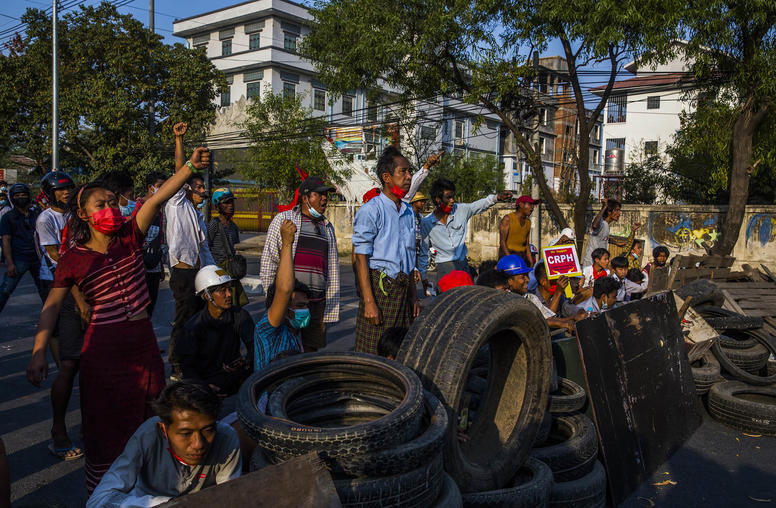
To Build a Unified Resistance and Democratic Myanmar, Discrimination Must End
Early on the morning of Myanmar’s February 2021 coup, Mya Aye, a prominent Muslim activist, was one of the first arrested by the new junta regime. Since then, thousands more have been imprisoned or killed by the regime, including dozens of Muslims, like prominent student leader Wai Moe Naing, and other marginalized minorities who have fought against the military junta alongside other ethnic and religious groups. Although the resistance shares a common enemy in the brutal junta, it has yet to fully embrace a vision for a more inclusive country that overcomes Myanmar’s legacy of ethnic and religious discrimination. To broaden its base of support domestically and internationally, resistance leaders should commit to address structural discrimination against minorities in Myanmar.
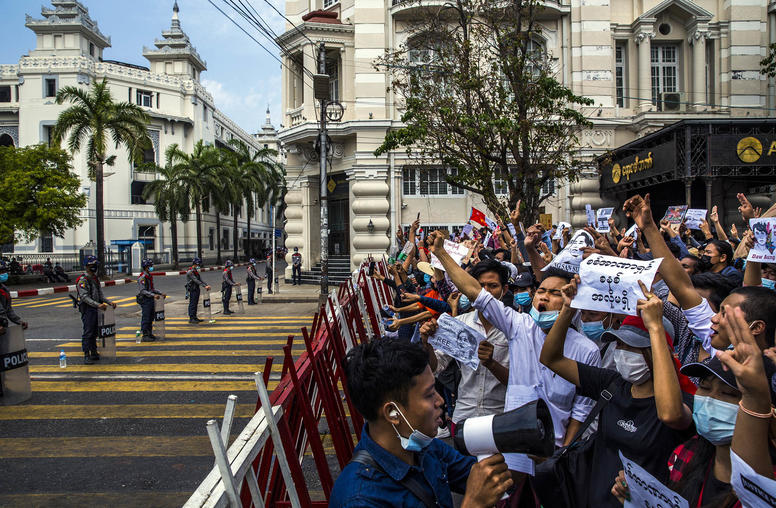
Why Myanmar’s Desperate Generals Executed Prominent Pro-Democracy Figures
From virtually the moment Myanmar’s military overthrew the country’s democratically elected government last year, the generals have faced a popular uprising that they met with escalating brutality. Even so, their decision last week to put to death — by hanging — four high-profile democracy advocates sparked shock and outrage at home and around the world. USIP’s Jason Tower, Priscilla Clapp and Billy Ford discuss what is behind the coup regime’s bloody move and its implications for Myanmar and international efforts to bring peace and democracy to the Southeast Asian country.
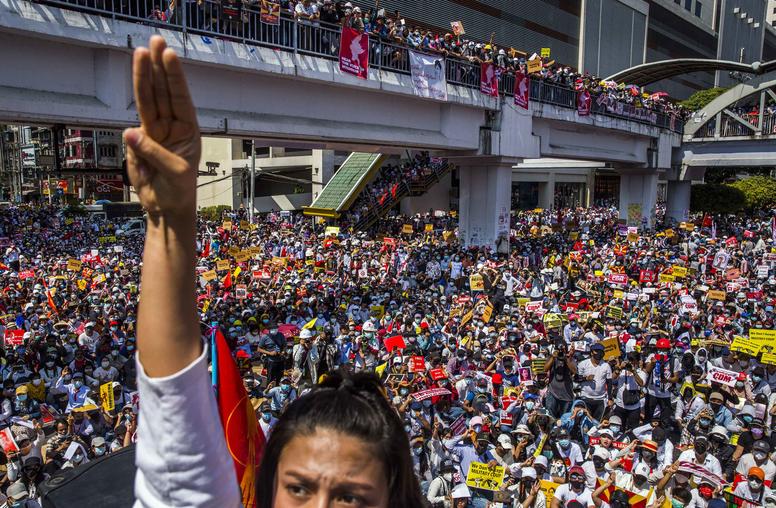
As Myanmar Coup Spurs National Resistance, a Unified Nation Could Emerge
The military’s coup in Myanmar has been a tragedy in every respect but one: It is increasingly clear that the generals’ power grab and bloody repression have united Myanmar’s diverse — and often adverse — ethnic and political groups to resist a common enemy and seek a better future. Ironically, the army, which has argued since independence that it alone can hold the country together, has inadvertently spurred a revolutionary and irreversible nation-building dialogue aimed at creating a federal democratic system and more inclusive national identity. The National Unity Consultative Committee, the platform for this dialogue, may be slow, complex and contentious, but its participants stay at the table for one reason: It offers the best opportunity to escape Myanmar’s vicious cycle of violence and authoritarian rule.

Billy Ford on Myanmar’s Resistance Movement
Despite the military junta’s imprisonment of ousted Myanmar leader Aung San Suu Kyi, USIP’s Billy Ford says there’s an opening for more inclusive narratives within the resistance movement — and if the movement can “unify around those [narratives] … it could come together and potentially defeat this regime.”
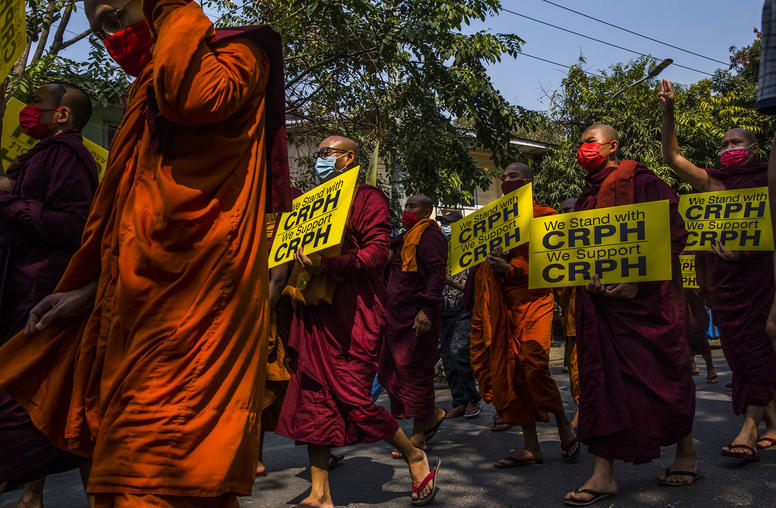
Myanmar Coup: Military Regime Seeks to Weaponize Religion
Ten months have passed since Myanmar’s military overthrew the country’s elected government, and by now it’s apparent that arrests, executions, torture and financial pressures will not pacify a population unwilling to be ruled by generals. So, the coup’s leader, Commander-in-Chief Min Aung Hlaing, is seeking to recast himself through military-controlled media. Rather than an autocrat who overturned the popular will, he portrays himself as the next in a long line of just and honorable Buddhist warrior-kings, monarchs who protected Buddhism from public apathy and external threats. The military is hoping that a barrage of religious propaganda can accomplish what force and violence have not.